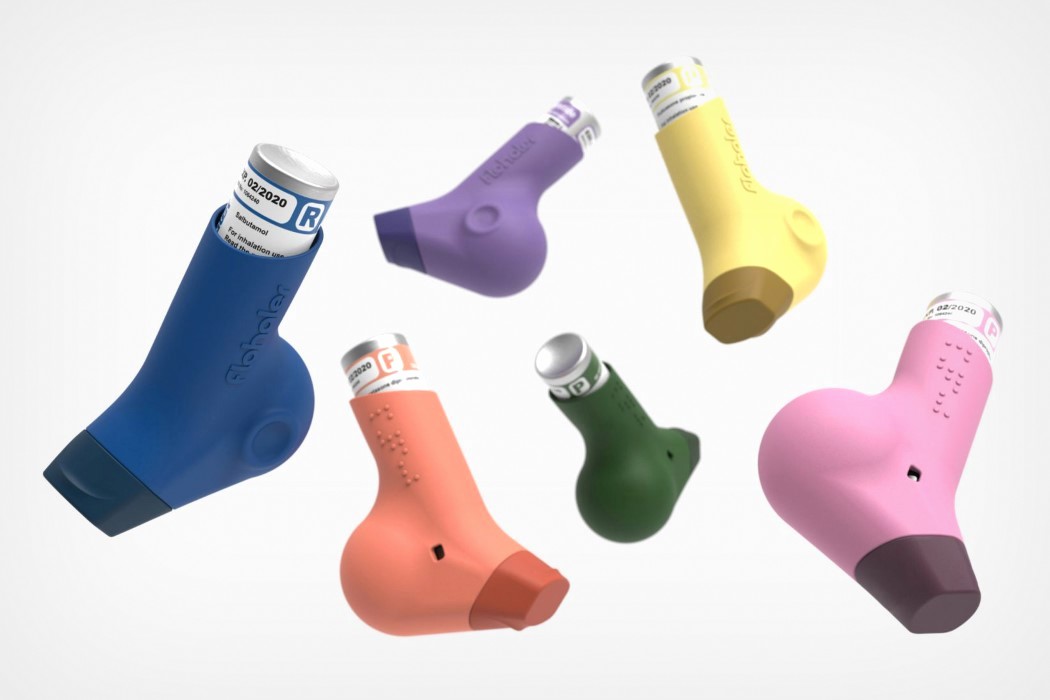
Designer of the Flohaler, James Plimmer, didn’t want to just make another inhaler that did a better job than the last, or that looked more stylish than most clinical-looking bronchial inhalers. Plimmer wanted to influence human behavior into inhaling correctly. The Flohaler’s form, in that regard, doesn’t follow function, but rather dictates it.
Designed to subconsciously guide the human into taking the dosage more effectively, the Flohaler’s tilted mouthpiece makes you want to tilt your head backwards, streamlining your airway as a result. Another common problem with inhalers is that patients often breathe the dose in too quickly. A narrower mouthpiece takes care of that problem by limiting the rate at which the dose flows through the inhaler and into the mouth, reducing drug deposition in the back of the throat. Designed to not just be more useful but more accessible too, the inhaler comes in a carefully selected color palette, allowing the color-blind to differentiate between different inhalers, while braille type molded right into the Flohaler’s body allows the visually impaired to tell the difference between different inhalers.
A recipient of multiple design and innovation awards, Plimmer says that the Flohaler shows a dramatic improvement in the way patients inhale their medicines.
Designer: James Plimmer